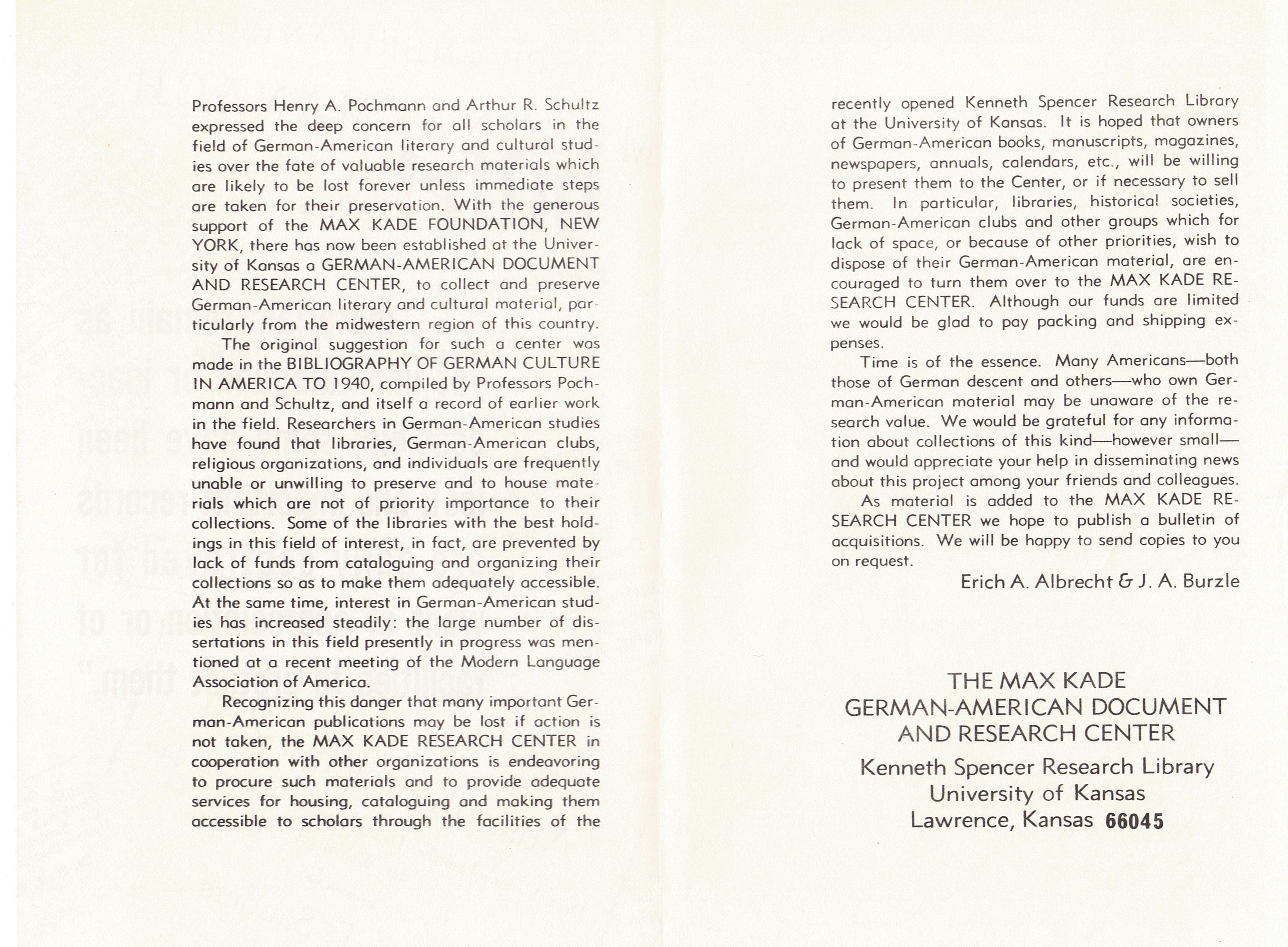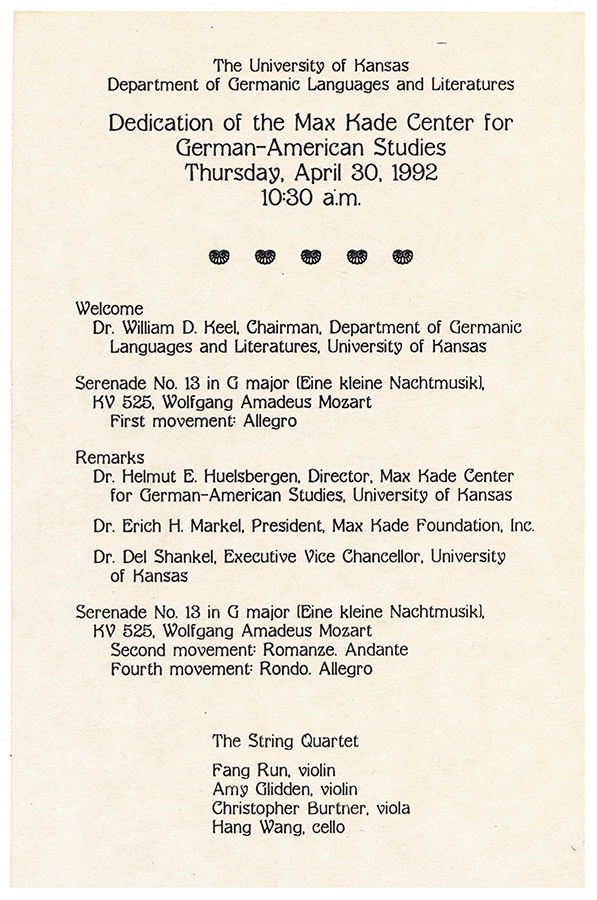
A Brief History of the Max Kade Center
1951 – The Max Kade Foundation (MKF) gives funds to the German Department for an annual lecture series relating to German Studies. This fund is later replaced by the Max Kade Professorship fund.
1965 – The first Max Kade Distinguished Visiting Professor, Dr. Gerhard Storz, comes to KU for the Spring Semester, funded by the Max Kade Foundation. Storz is faculty of the German department.
1968 – Professors Erich A. Albrecht & J. Anthony Burzle found the Max Kade German-American Document and Research Center in the newly built Kenneth Spencer Research Library. Their work to create this Center is a response to the concern expressed by Henry A. Pochmonn and Arthur R. Schultz in Bibliography of German Culture in American to 1840 for the need to preserve German-American primary sources and materials. The Center is founded independently of the German Department. Albrecht and Burzle send a nationwide call for donations which results in one of the first significant collections at the Max Kade Center – the Lending Library of the Milwaukee Lending Library.

1983 – In December of 1983, the offices of the Executive Vice Chancellor and Academic Affairs assign the Sudler House to the Department of German Languages and Literatures for the use of the Max Kade Center. Previously, the house held the Design and Construction Management offices but is reassigned after Sudler’s attorney urges KU to honor Dr. Sudler’s wishes that the house serve as a residence for visiting scholars.
1987 – The Max Kade Center is realigned to be part of the Department of German Languages and Literatures. Professor Helmut E. Huelsbergen is chosen from among the department’s faculty to serve as the center’s new director.
1991 – Renovations of the Sudler House begin. Funds contributed by the MKF support the construction of an apartment to host Max Kade Distinguished Professors.
1992 – The new location of the Max Kade Center is dedicated in April.

1999 – The MKF begins funding four graduate fellowships in German Studies annually.
2012 – The Max Kade Center gains control of the Sudler Annex, formerly home to KU’s student-run radio station, KJHK, to house and display collections. The Sudler Annex is renovated by the MKF and the NYTV 1850 Foundation to house the archives of the New York and Mount Vernon Turn Vereine.
2015 – Funding for Max Kade Distinguished Visiting Professors and Graduate Fellowships are no longer provided as the graduate program in German Studies is discontinued. The Max Kade Center continues and strengthens outreach. More emphasis is put on collections preservation.
2024 – The Max Kade Center receives funds from the director emeritus Frank Baron and the MKF to update the Sudler house and the apartment in it. The MKF also commits funds for a new creative-in-residence program to bring German authors, writers, artists, scholars, translators, etc. to KU to work, teach a 1-unit course, and give a talk on their work.
Directors
Erich A. Albrecht (1968-1979) Founding Co-Director
J. Anthony “Toni” Burzle (1968-1981) Founding Co-Director
*In the early 80’s there was no official director, but Don Watkins, Bill Keel, and Helmut Huelsbergen kept efforts afloat.*
Helmut E. Huelsbergen (1987 -1994) First Director after realignment
Frank Baron (1997-2013)
Jim Morrison (2013-2018)
Lorie Vanchena (2014-2022)